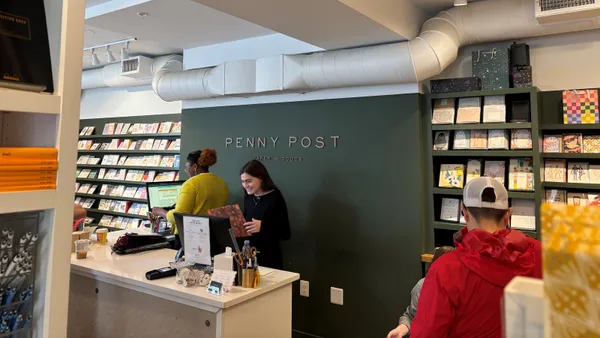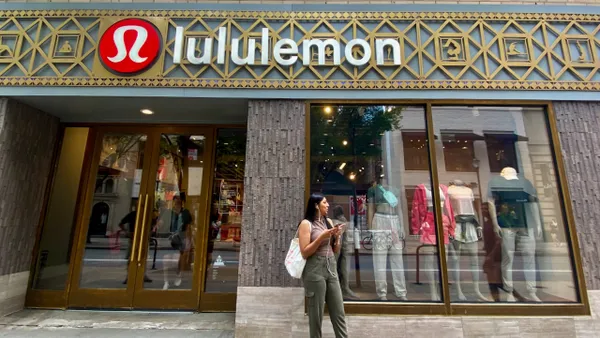Dive Brief:
-
Consumer sentiment in January tumbled for the first time in six months, dipping nearly 4% from December and 10% from a year ago, according to the most recent report from the University of Michigan Surveys of Consumers.
-
According to a report from business think tank The Conference Board last week, consumer confidence in January dropped 5.4 points from December. Wells Fargo economists Tim Quinlan and Jeremiah Kohl pegged that as a four-month low.
-
Job worries and to a lesser extent inflation concerns are driving the declines, according to the reports.
Dive Insight:
President Donald Trump’s tariffs on Canada, Mexico and China, announced via executive order over the weekend, are complicating an already messy outlook for the consumer.
Economist Joanne Hsu, director of Michigan’s Surveys of Consumers, said in a statement that “sentiment declines were broad based and seen across incomes, wealth, and age groups.”
“January’s data closed on Inauguration Day, and consumers of all political leanings will continue to refine their views as Trump’s policies are clarified and implemented,” she also said.
Both reports, and related research from Wells Fargo, cited worries over unemployment and inflation, even though employment and wage trends, along with assessments of personal finances, remain fairly healthy. Nearly half of consumers surveyed by Michigan — the greatest percentage since the pandemic — expect unemployment to rise this year, despite also reporting higher incomes, Hsu said.
“Consumer perceptions of the labor market took a dive in January,” the Wells Fargo economists said, noting that this is weighing on consumers “even though the monthly jobs report shows an increased pace of hiring.”
While inflation appears as a secondary concern, that could be exacerbated in coming months as tariffs make their mark. Across income and level of education, more consumers in January said they expect inflation to persist this year as well as in the longer run, according to the Michigan survey. The Conference Board found a less pronounced level of worry around inflation, but did find that concerns rose for the second straight month.
“Concerns over the future trajectory of inflation were visible throughout the interviews and were tied to beliefs about anticipated policies like tariffs,” Hsu said.















